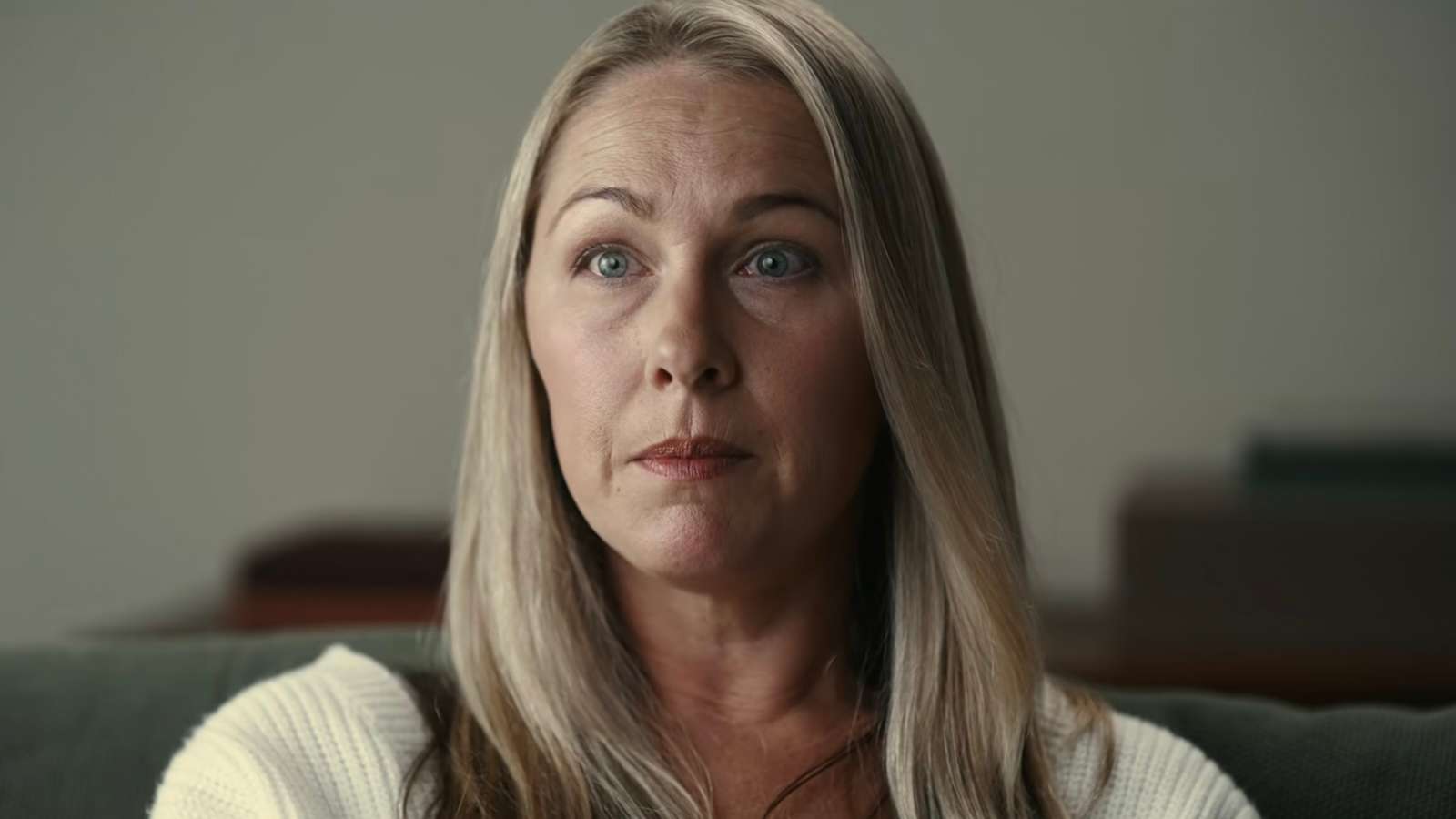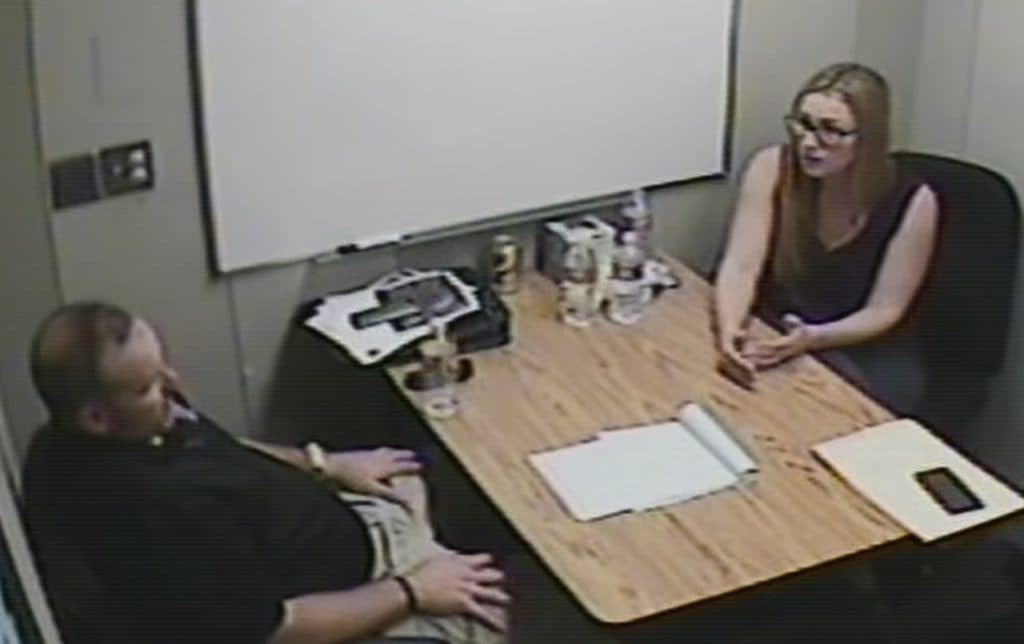American Nightmare is tragically connected to another Netflix documentary
 Netflix
NetflixAmerican Nightmare, a brand new documentary series on Netflix about the so-called “Gone Girl kidnapping,” has arrived – and it is tragically connected to another of the streamer’s true crime entries.
Netflix’s American Nightmare is a three-part docu-series about the case of Denise Huskins and her partner Aaron Quinn, who were accused of creating a hoax after Huskins was kidnapped from their California home in 2015 for two days.
Even when they provided substantial evidence to prove they were victims of a crime, authorities refused to believe them. American Nightmare examines how Quinn was initially treated as a suspect. When Huskins was returned by the kidnapper, things only descended for the pair, with both of them treated as criminals – by the press and the police, who dubbed them the “Gone Girl hoaxers.”
The true crime series is out now, and there’s an undeniable link to another major Netflix documentary that dropped last year. Warning: Some may find this content distressing.
American Nightmare is tragically connected to another Netflix documentary
The themes explored in American Nightmare are tragically similar to those in Victim/Suspect – a feature-length Netflix documentary on a journalist’s investigations into numerous cases of young women who reported their sexual assaults with substantial evidence, only for the police to accuse them of lying and arrest them for filing false reports.
Journalist Rae de Leon’s research led to her uncovering a shockingly high number of these cases across the US, which highlight a pattern of victim-blaming by the police. Similarly, Huskins recounts facing a similar situation when it came to her kidnapping and sexual assault.
Speaking in American Nightmare while sitting beside her husband, Huskins explains that she was first sexually assaulted when she was 12 years old. “I was just a child and it was unexpected and I didn’t know what to do… A couple of years later I find out that he molested another girl and I felt incredible guilt that I didn’t say something sooner,” she says.
When Huskins was assaulted again at the age of 19, she decided this time she was going to report it. “I get to the police station and in the parking lot I met with an officer who basically talks me out of it,” she explains. “Says, you know, ‘Really it’s a he said, she said, there’s not going to be any proof.’”
But, years later, when Huskins was taken in the middle of the night, kept for two days, and sexually assaulted by the perpetrator, even with concrete evidence – matching accounts between Huskins and Quinn, photographic evidence, an audio recording, and a character description – she still wasn’t believed.
 Netflix
Netflix“Here I am, literally taken in the middle of the night, my body stolen and violated, and it’s still… they don’t believe me,” she says. Not only this, but Huskins faced prosecution for “lying to a federal police officer,” which comes with a sentence of somewhere between one year and 18 months.
Just as everything was falling apart for the couple, a similar attempted kidnapping unfolded in Dublin, California – not far from where Huskins was taken. The perpetrator, Matthew Muller, was eventually apprehended and linked to the crime through a series of evidence, his modus operandi involving elaborate planning. Muller was eventually sentenced to 40 years in federal prison after pleading guilty to the kidnapping charges.
The docu-series examines how Detective Mat Mustard and the Vallejo Police Department mishandled the case, refusing to believe any evidence outside of their theory and turning to the fictional work of Gone Girl. In another shocking moment, Huskin’s mother recalls that after telling Mustard her daughter had been molested as a child, he said: “Women that have been sexually assaulted often pretend to have it happen again so they can relive the thrill of it.”
As is explored in Victim/Suspect, there are many cases in which police express similar attitudes towards sexual assault survivors. One of those highlighted in the documentary is that of Connecticut college student Nikki Yovino, who was convicted of making false rape allegations against two Sacred Heart University football players in 2016. Dyanie Bermeo’s case was shockingly similar, having been turned from a victim to a suspect by the police after reporting being sexually assaulted.
Another was Emma Mannion. Just 18 years old at the time, the University of Alabama student reported that she had been sexually assaulted by two men who forced her into the backseat of a car. But rather than understanding and offering help, Mannion was met with skepticism and blame, eventually leading to her arrest.
These cases are just a drop in the ocean, as is explored in the film. Elaborating on the importance of making Victim/Suspect and giving these women a platform to share their stories, de Leon told Tudum: “I always thought we needed to retell their narratives, because they were stolen from them from the very beginning. It was about offering them a space to finally tell it from their point of view.”
Huskins and Quinn also hope that by sharing their story, they can prevent other crimes like this from happening again – and help put a stop to prejudice against sexual assault victims. “Part of continuing to share our story is to try to shine a spotlight on the lack of accountability and hope that other law enforcement will change and that our rush to judgment will slow,” Quinn told USA Today. “We can’t prevent what happened to us, but we can try to prevent it from happening to other people.”
American Nightmare and Victim/Suspect are available to stream on Netflix now – you can read about the former here and the latter here.



